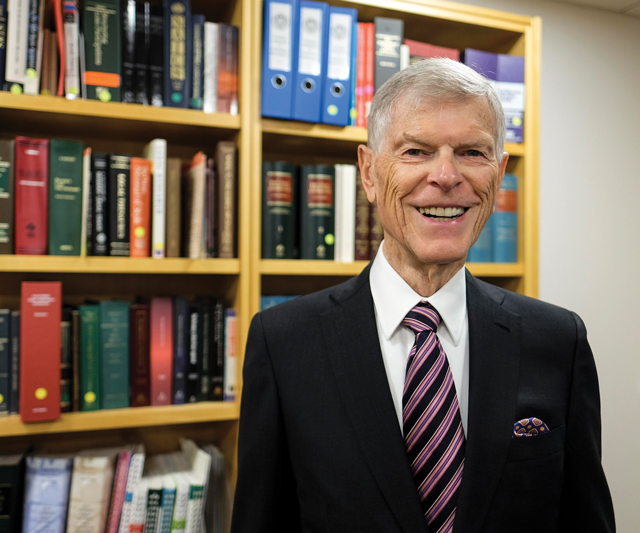Leo Pircher, 85
Title: Senior counsel, co-founder, Pircher, Nichols & Meeks, Century City
Background: Leo Pircher received both his bachelor’s degree and Juris Doctor degree from U.C. Berkeley. After graduating from law school in 1957, he joined a major corporate law firm in Los Angeles and became a partner in 1961. While Pircher started out primarily a tax lawyer, his practice morphed into various additional areas, including mergers and acquisitions, securities law, bankruptcy and real estate. His practice took a radical turn in 1970 when he was hired by a Chicago group to assist in establishing a real estate tax shelter business. Pircher created the legal and tax framework for the group’s business, which ultimately became a model for the real estate tax shelter industry. The client became one of the largest real estate companies in the U.S., and Pircher and his team handled all of its real estate and tax structuring work nationwide. After 26 years, he left the law firm and formed Pircher, Nichols & Meeks with an initial team of 18 lawyers. Today, the firm is known as one of the leading law firms in the real estate industry. The firm currently limits its practice to commercial real estate related matters, and through its representation of some of the world’s largest private equity and real estate companies, has been involved in many of the largest and most prominent real estate transactions over the past 35 years.
How many hours a week do you work?
I am in the office most days that I am in town, and tend to work a full day, which is about seven hours.
Why not retire?
I have always loved practicing law, and am reluctant to give it up completely. In addition, it helps me keep intellectually active, which is the key to avoiding old age dotage. I also enjoy keeping up with the new deals, and the changes in the law, and talking with colleagues and clients.
How do you go about learning new technologies, and is that necessary for your work?
I have to use them, but, fortunately, my assistant and our IT support personnel are able to save me.
Do co-workers seek out my experience and knowledge?
Yes.
How do you keep the work you do fresh and interesting?
This is not a challenge; the work is innately dynamic and therefore always interesting.
What are the biggest changes you’ve observed in your workplace environment across your career, and what are key aspects that have never changed?
There have been enormous changes in the last 60 years. On the positive side, women and minorities are now key members of the profession, practicing in all areas of the law. Sixty years ago, the few women lawyers were essentially limited to probate and family law, and minorities were virtually non-existent in major law firms. On the negative side, the law used to be a profession where the money was secondary to the work, and a lawyer’s word was his bond. Now it is a business, where the money is primary, and you better get it in writing. What hasn’t changed is the dynamism and the fun of working out a really complicated transaction.
Are there advantages to working at your age? If so, what are they?
The advantages to me are the opportunities to stay involved. From the firm’s standpoint, the advantages are that I have the corporate memory and a number of important contacts.
What do you do for fun?
I travel extensively, both foreign and domestic. I am significantly involved in various nonprofit and charitable enterprises, including my law school and a number of art museums. I enjoy collecting photography, seeing opera, listening to classical music and seeing live dramatic performances. Reading, especially about history, politics and current events, is also one of my passions.

